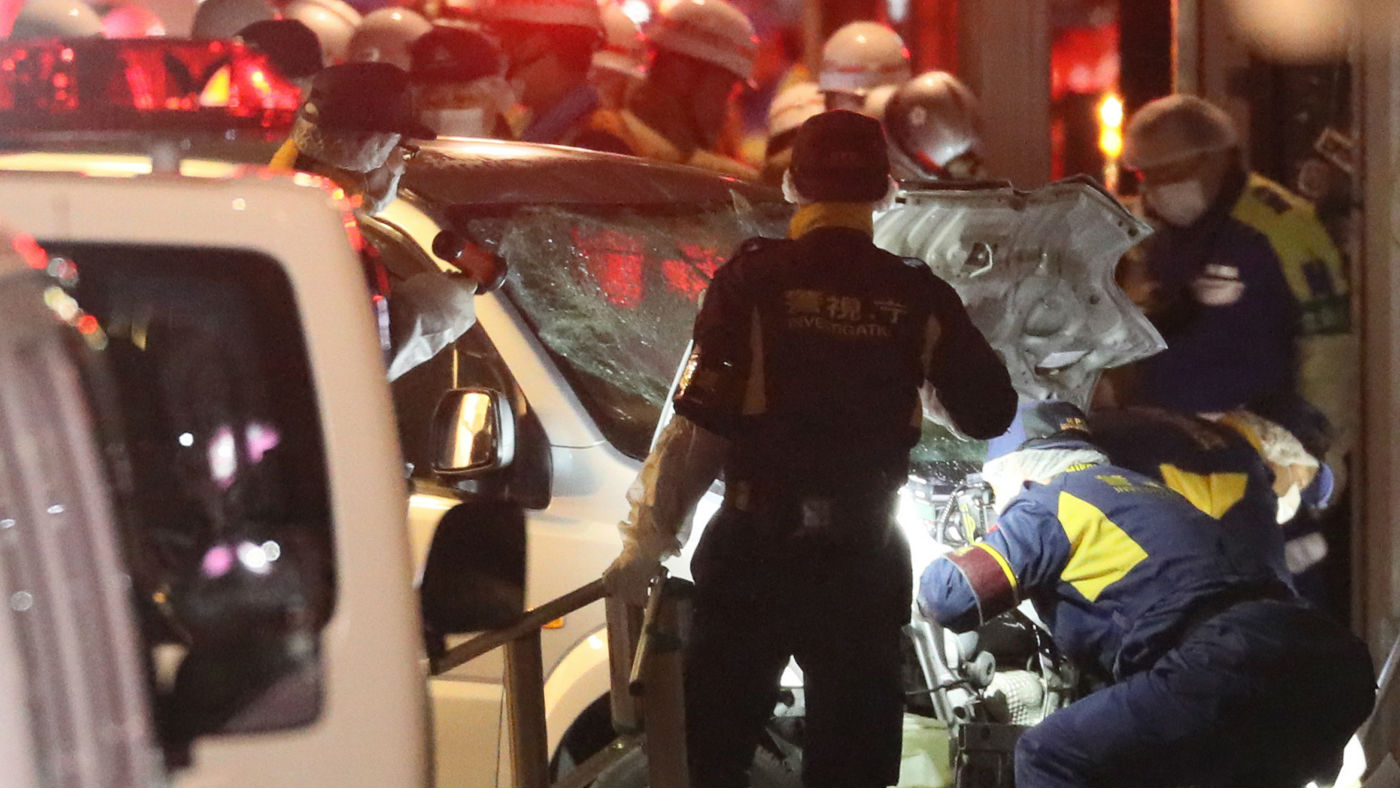Germany and Japan rocked by New Year’s Day car attacks
Nine injured in Tokyo in act of retaliation for Aum executions, while four hurt in anti-immigrant attack in west Germany

A free daily email with the biggest news stories of the day – and the best features from TheWeek.com
You are now subscribed
Your newsletter sign-up was successful
At least nine people were injured, one seriously, when a car deliberately ploughed into crowds celebrating the New Year in central Tokyo, in an apparent act of retaliation for the execution of Aum cult members responsible for the 1995 Sarin gas attack.
The incident occurred on the well-known Takeshita Street in the shopping and tourist district of Harajuku.
CNN says the “narrow, iconic street is known worldwide as a hub of Japanese youth culture and fashion, and the area famous for its “Harajuku girls,” who dress in outlandish, striking costumes”.
The Week
Escape your echo chamber. Get the facts behind the news, plus analysis from multiple perspectives.

Sign up for The Week's Free Newsletters
From our morning news briefing to a weekly Good News Newsletter, get the best of The Week delivered directly to your inbox.
From our morning news briefing to a weekly Good News Newsletter, get the best of The Week delivered directly to your inbox.
The road was closed to traffic over the New Year, largely because of its proximity to the famous Meiji Shrine, meaning it was packed with pedestrians when a minivan barreled down it just minutes after midnight.
After hitting nine pedestrians, the suspect fled from the scene and assaulted a passerby before he was captured 20 minutes later. TV Asahi has reported that a large amount of kerosene was discovered in the car and traces of the liquid were also found on the suspect’s clothes.
The suspect appeared to have planned to set his car on fire, Mainichi newspaper and other Japanese media report.
The man was later identified as 21-year-old Kazuhiro Kusakabe from the city of Osaka, 400 miles southwest of Tokyo. A police spokesman said he has been detained on suspicion of attempted murder.
A free daily email with the biggest news stories of the day – and the best features from TheWeek.com
The Japan Times reports that Kusakabe had initially described the incident as an “act of terror” but later said the attack was in retaliation for capital punishment.
He reportedly told police that he had acted in “retaliation for the execution of Aum cult members”.
The remaining members of the doomsday cult, which was found to be responsible for a 1995 sarin gas attack on a Tokyo subway, were executed in July.
Anti-immigrant car attack rocks Germany
In Germany, at least four people have been injured after a man drove his car into a crowd of people on New Year’s Day, in what appears to have been an intentional attack directed at immigrants.
Police said they have arrested the 50-year-old driver of a silver Mercedes who first attempted to hit a group of pedestrians in the western city of Bottrop before driving into a crowd of people in the city centre.
He then sped towards the nearby city of Essen, where he tried and failed to hit people waiting at a bus stop before being arrested on suspicion of attempted homicide.
Police have confirmed that those injured included Syrians and Afghans and The Guardian reports that authorities have said the driver made anti-immigrant comments during his arrest.
“Investigating authorities are currently working on the assumption that this was a targeted attack, possibly motivated by the anti-foreigner views of the driver,” police said.
12 people were killed in December 2016 when a Tunisian man ploughed a truck into a Christmas market in Berlin. The attack was later claimed by Islamic State.
-
 Why are election experts taking Trump’s midterm threats seriously?
Why are election experts taking Trump’s midterm threats seriously?IN THE SPOTLIGHT As the president muses about polling place deployments and a centralized electoral system aimed at one-party control, lawmakers are taking this administration at its word
-
 ‘Restaurateurs have become millionaires’
‘Restaurateurs have become millionaires’Instant Opinion Opinion, comment and editorials of the day
-
 Earth is rapidly approaching a ‘hothouse’ trajectory of warming
Earth is rapidly approaching a ‘hothouse’ trajectory of warmingThe explainer It may become impossible to fix
-
 Switzerland could vote to cap its population
Switzerland could vote to cap its populationUnder the Radar Swiss People’s Party proposes referendum on radical anti-immigration measure to limit residents to 10 million
-
 Epstein files topple law CEO, roil UK government
Epstein files topple law CEO, roil UK governmentSpeed Read Peter Mandelson, Britain’s former ambassador to the US, is caught up in the scandal
-
 Iran and US prepare to meet after skirmishes
Iran and US prepare to meet after skirmishesSpeed Read The incident comes amid heightened tensions in the Middle East
-
 Israel retrieves final hostage’s body from Gaza
Israel retrieves final hostage’s body from GazaSpeed Read The 24-year-old police officer was killed during the initial Hamas attack
-
 China’s Xi targets top general in growing purge
China’s Xi targets top general in growing purgeSpeed Read Zhang Youxia is being investigated over ‘grave violations’ of the law
-
 Panama and Canada are negotiating over a crucial copper mine
Panama and Canada are negotiating over a crucial copper mineIn the Spotlight Panama is set to make a final decision on the mine this summer
-
 Why Greenland’s natural resources are nearly impossible to mine
Why Greenland’s natural resources are nearly impossible to mineThe Explainer The country’s natural landscape makes the task extremely difficult
-
 Iran cuts internet as protests escalate
Iran cuts internet as protests escalateSpeed Reada Government buildings across the country have been set on fire